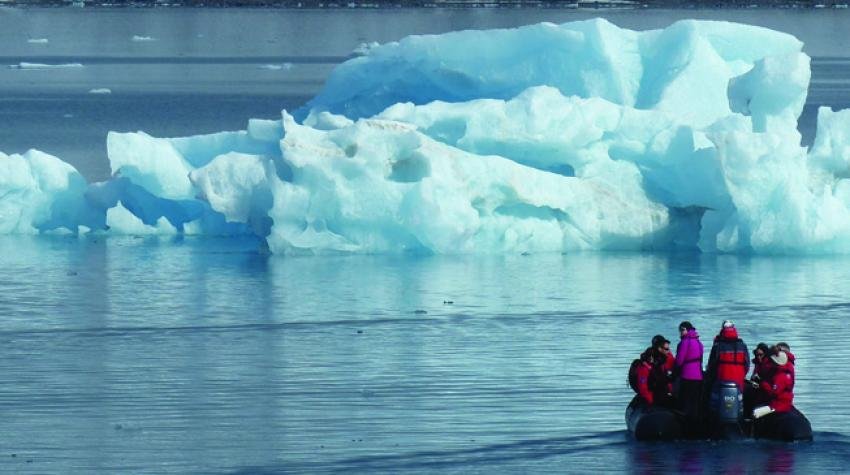I. Introduction
A. Defining Climate Change
Climate change refers to the long-term alteration of temperature and typical weather patterns in a specific area. This phenomenon is largely driven by human activities, such as burning fossil fuels and deforestation, which release greenhouse gases into the atmosphere.
B. Importance of Ocean Research in Understanding Climate Change
Understanding the intricate relationship between climate change and the ocean is crucial for comprehending the full extent of its impact on the planet. Oceanic processes play a significant role in regulating the Earth’s climate, making research in this area indispensable.
II. The Role of the Ocean in Climate Change
A. Absorption of Carbon Dioxide
The ocean serves as a vast carbon sink, absorbing a substantial portion of the carbon dioxide emitted into the atmosphere. While this mitigates the effects of greenhouse gas accumulation in the air, it also leads to ocean acidification, posing significant threats to marine life.
B. Impact on Weather Patterns
The ocean influences global weather patterns through phenomena like El Niño and La Niña. Changes in sea surface temperatures can result in extreme weather events, including hurricanes, droughts, and floods, impacting both coastal communities and inland regions.
C. Sea Level Rise
Melting polar ice caps and thermal expansion contribute to rising sea levels, posing a direct threat to low-lying coastal areas and island nations. This phenomenon exacerbates coastal erosion, increases the risk of flooding, and displaces millions of people worldwide.
III. Human Activities and Oceanic Impact
A. Pollution
Human activities, such as industrial waste disposal and plastic pollution, degrade marine ecosystems and harm aquatic species. Pollutants accumulate in the ocean, contaminating food chains and posing health risks to both marine life and humans.
B. Overfishing
Overfishing depletes fish populations and disrupts marine ecosystems, jeopardizing food security and livelihoods dependent on fisheries. Unsustainable fishing practices exacerbate biodiversity loss and compromise the resilience of oceanic ecosystems.
C. Coastal Development
Coastal development, including urbanization and infrastructure projects, alters coastal habitats and increases pollution runoff into the ocean. Habitat destruction and shoreline modification disrupt natural processes, exacerbating the vulnerability of coastal communities to climate-related hazards.
IV. Research Initiatives
A. Monitoring Ocean Temperatures
Scientists utilize advanced technologies, such as satellite imagery and ocean buoys, to monitor changes in ocean temperatures. Long-term data collection enables researchers to identify trends, assess climate impacts, and inform mitigation strategies.
B. Studying Marine Ecosystems
Research expeditions and marine surveys provide insights into the complex interactions within marine ecosystems. Understanding species dynamics, habitat preferences, and ecological processes informs conservation efforts and promotes sustainable resource management.
C. Analyzing Ocean Currents
Oceanographic studies investigate the dynamics of ocean currents and their role in global climate patterns. Mapping ocean circulation patterns helps predict climate variability, assess oceanic heat distribution, and understand the impact of currents on marine ecosystems.
V. Addressing Climate Change through Ocean Conservation
A. Reducing Carbon Emissions
Mitigating climate change requires reducing carbon emissions and transitioning to renewable energy sources. Sustainable practices, such as carbon sequestration and reforestation, help offset greenhouse gas emissions and mitigate ocean acidification.
B. Implementing Sustainable Fishing Practices
Regulating fishing activities and establishing marine protected areas promote sustainable fisheries management. By preventing overexploitation and preserving critical habitats, sustainable fishing practices ensure the long-term viability of marine resources.
C. Protecting Coastal Areas
Coastal conservation efforts, including mangrove restoration and shoreline protection, mitigate the impacts of sea level rise and coastal erosion. Sustainable coastal development practices prioritize ecosystem resilience and community adaptation to climate change.
VI. Conclusion
The ocean plays a pivotal role in shaping the Earth’s climate and supporting life on our planet. Human activities have significantly altered oceanic ecosystems, exacerbating the impacts of climate change. Through scientific research and conservation initiatives, we can address the challenges posed by climate change and safeguard the health and resilience of our oceans for future generations.

